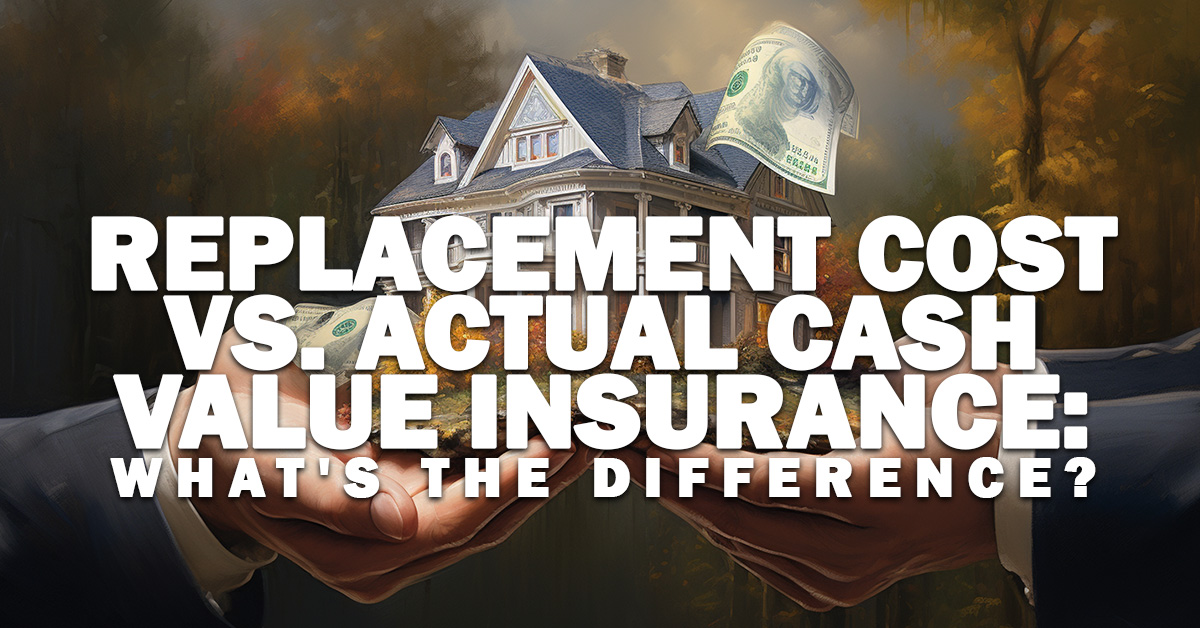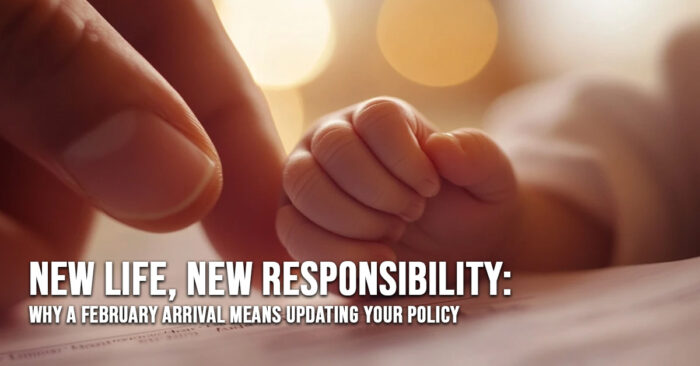Replacement Cost vs. Actual Cash Value Insurance: What’s the Difference?

Replacement Cost vs. Actual Cash Value Insurance: What’s the Difference?
When you’re shopping for homeowners insurance, one of the most important decisions you’ll make is how much coverage to purchase. One of the factors that will affect your coverage amount is the type of property insurance you choose: replacement cost or actual cash value (ACV).
Replacement cost insurance covers the cost of replacing your home and belongings with new, similar items. This means that if your home is destroyed in a fire, for example, your insurance company will pay you enough money to rebuild your home and replace all of your belongings.
Actual cash value insurance, on the other hand, only pays you the depreciated value of your home and belongings. This means that if your home is destroyed in a fire, your insurance company will only pay you the value of your home and belongings as of the day of the fire, minus depreciation.
So, which type of property insurance is right for you? It depends on your budget and your risk tolerance. If you can afford to pay a higher premium, replacement cost insurance is the best way to protect yourself financially in the event of a loss. However, if you’re on a tight budget, ACV insurance may be a more affordable option.
Here’s a table that summarizes the key differences between replacement cost and ACV insurance:
| Feature | Replacement Cost Insurance | Actual Cash Value Insurance |
| Coverage amount | Pays the cost to replace your home and belongings with new, similar items | Pays the depreciated value of your home and belongings |
| Cost | More expensive | Less expensive |
| Risk | Provides more financial protection | Provides less financial protection |
Which type of property insurance is right for me?
The best way to decide which type of property insurance is right for you is to talk to your insurance agent. They can help you assess your needs and budget and recommend the best type of coverage for you.
Here are some things to consider when choosing between replacement cost and ACV insurance:
- Your budget: Replacement cost insurance is typically more expensive than ACV insurance. However, it’s important to weigh the cost of the premium against the potential cost of a loss. If you can afford to pay a higher premium, replacement cost insurance is the best way to protect yourself financially in the event of a loss.
- Your risk tolerance: If you live in an area that is prone to natural disasters, such as hurricanes or tornadoes, you may want to consider replacement cost insurance. Replacement cost insurance will give you peace of mind knowing that you’ll be able to rebuild your home and replace your belongings if they’re damaged or destroyed in a disaster.
- The age and condition of your home and belongings: If you have an older home or belongings that are in poor condition, ACV insurance may be a more affordable option. However, it’s important to keep in mind that ACV insurance will only pay you the depreciated value of your home and belongings, which may not be enough to replace them.
How to get the most out of your homeowners insurance
No matter which type of property insurance you choose, it’s important to take steps to get the most out of your coverage. Here are a few tips:
- Make sure you have enough coverage. Your homeowners insurance policy should cover the cost to rebuild your home and replace your belongings at their current value. Be sure to review your policy regularly and make sure that your coverage limits are still adequate.
- Keep an inventory of your belongings. This will help you to file a claim accurately and quickly if you experience a loss. Be sure to include photos and receipts of your belongings.
- Update your policy regularly. If you make any changes to your home or belongings, be sure to update your homeowners insurance policy accordingly. This will ensure that you have adequate coverage for any new acquisitions.
By following these tips, you can help to ensure that you have the best possible homeowners insurance coverage for your needs.
Additional tips:
- Shop around for multiple quotes. Don’t just renew your homeowners insurance policy with the same company every year. Take the time to shop around and compare quotes from multiple companies to find the best deal.
- Consider bundling your homeowners insurance policy with other policies, such as auto insurance or life insurance. Many companies offer discounts for customers who bundle their policies.
- Ask about your deductible. Your deductible is the amount of money that you have to pay
Do you have questions about your insurance? Find an insurance agent near you with our Agent Finder
Search All Blogs
Search All Blogs
Read More Blogs
Spring Skies and Structural Eyes: Why a March Roof Check is Your Best Insurance Policy
Don’t wait for a leak to check your roof. Learn how to spot late-winter damage and protect your home’s structure this March.
The Mystery of the Plastic Baby: A Guide to Mardi Gras and the King Cake
Why is there a baby in the cake? Discover the history and traditions of Mardi Gras 2026 and the delicious mystery of the King Cake.
Let the Good Times Roll—Safely: Mardi Gras Liability for Your Business
Hosting a Mardi Gras party this Tuesday? Make sure your business has the right event liability and liquor coverage before the beads start flying.
The Business “Prenup”: Why Business Partners Need Life Insurance in February
Love your business partner? Protect your company with a Life Insurance-funded Buy-Sell agreement to ensure the business survives the unexpected.
Heading South? Insuring Your Mid-Winter Break Road Trip in February
Driving to find some sun this week? Check your roadside assistance and rental car coverage before you leave the driveway.
Spring Dreams, Winter Schemes: Updating Your Insurance Before Your Spring Renovation
Planning a Spring kitchen remodel? Learn why you need to call your insurance agent before the contractors arrive to ensure your project is covered.
Shadow or Spring? The Quirky Science and Folklore of Groundhog Day 2026
Will he see his shadow? Dive into the history and humor of Groundhog Day 2026 and why we still trust a rodent with our weather forecasts.
Stocked for Love: Protecting High-Value Valentine’s Inventory with Business Insurance
Is your Valentine’s stock protected? Ensure your business insurance accounts for the massive inventory surge happening in early February.
New Life, New Responsibility: Why a February Arrival Means Updating Your Policy
Welcoming a new family member this February? It’s time to move life insurance to the top of your to-do list to ensure your child’s future is secure.
Delivering Love: The Insurance Risks of Valentine’s Week Gig Work
Delivering flowers or chocolates for extra cash this Valentine’s? Make sure your car is actually insured for delivery work before you hit the road.









